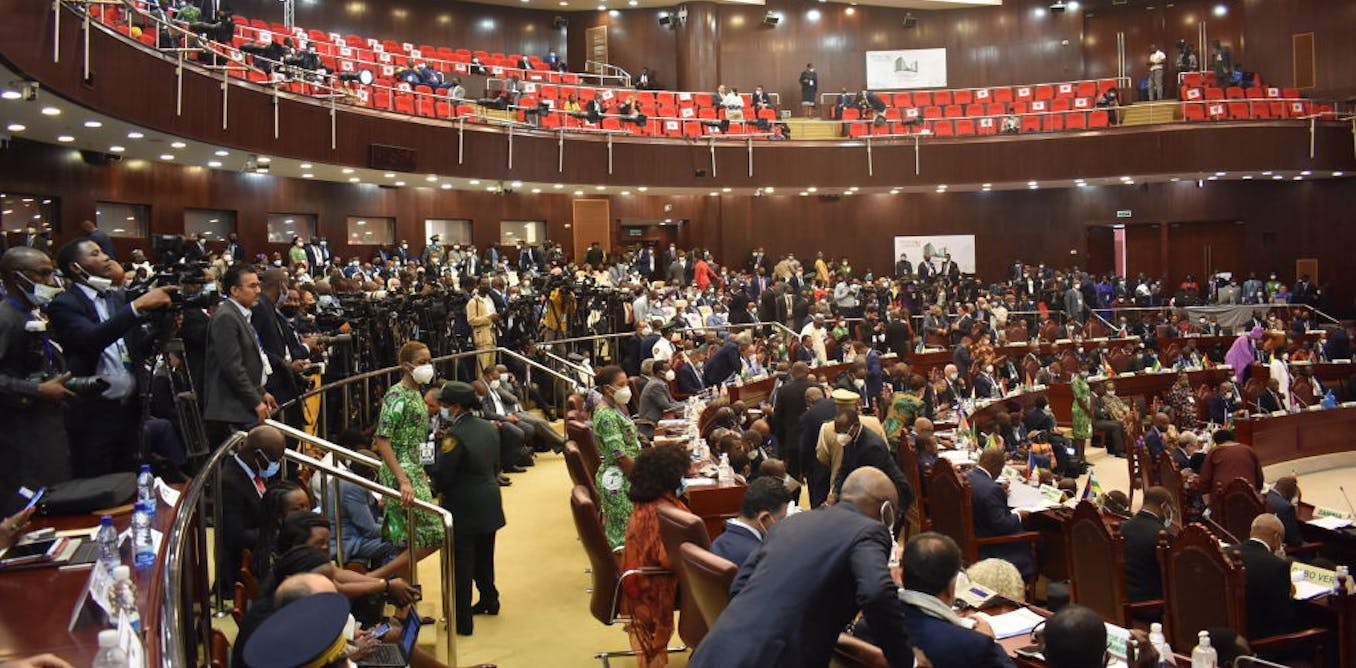Pan-Africanism remains a dream - 4 key issues the African Union must tackle
The African Union (AU) – made up of 55 member countries – has made significant progress with integrating the countries of the continent and giving them a voice in global politics.
Over the past two decades it has developed meaningful policies on peace and security, and trade, like the African Continental Free Trade Area. The African Union Commission helps set the agenda and represent African interests in global forums alongside important partners like the United Nations and the European Union.
Continued here